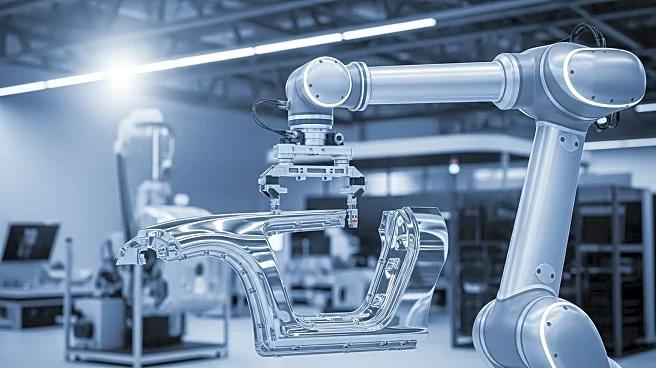What's Happening?
President Trump is contemplating significant tariff relief for U.S. auto production, which could substantially reduce costs for major car manufacturers. According to Republican Senator Bernie Moreno, this move would benefit companies like Ford, Toyota, Honda, Tesla, and GM, which are among the top domestic content vehicle producers. The proposed relief aims to incentivize automakers to increase production within the United States, aligning with Trump's policy to boost American job creation. The Commerce Department had previously announced an import adjustment offset of 3.75% of the suggested retail price for eligible U.S.-assembled vehicles, which is set to last through April 2026. Trump is considering extending this offset to five years and expanding it to include U.S. engine production. Automakers' shares have risen following the news, with Ford, Stellantis, and GM seeing notable increases.
Why It's Important?
The potential tariff relief is significant for the U.S. automotive industry as it could lead to increased domestic production and job creation. By reducing the financial burden on automakers, the policy could encourage more companies to establish or expand their manufacturing operations in the U.S., thereby strengthening the domestic economy. This move aligns with Trump's broader economic strategy to prioritize American manufacturing and reduce dependency on foreign imports. Automakers with substantial U.S. production stand to gain the most, as they would benefit from reduced tariffs, potentially leading to lower production costs and increased competitiveness in the global market.
What's Next?
A final decision from President Trump is anticipated soon, which could solidify the proposed tariff relief measures. If implemented, the policy may prompt automakers to reassess their production strategies, potentially leading to increased investment in U.S. facilities. The administration's commitment to securing domestic auto production suggests further policy developments could follow, aimed at bolstering the U.S. automotive sector. Stakeholders, including political leaders and industry representatives, will likely continue to engage in discussions to shape the final outcome of the tariff relief proposal.









